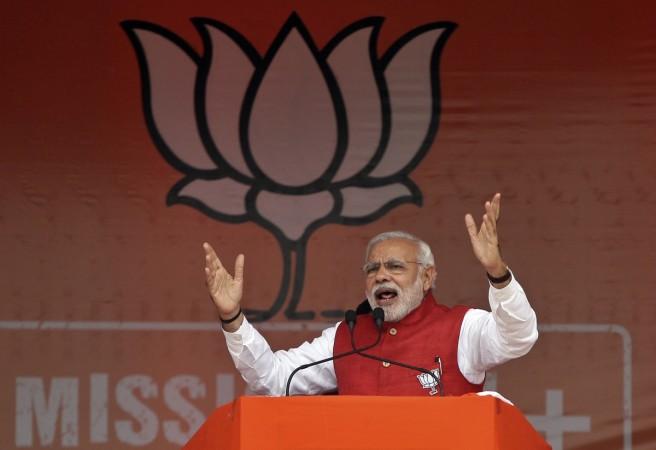
The domestic benchmark indices have pared gains after Narendra Modi took over as the Prime Minister last year, a good number of stocks have witnessed a 50 percent increase in their prices.
Recent volatility in the Indian stock market, on the back of aggressive selling of shares of foreign investors, has led the 50-share Nifty to register only about 15 percent gain on the completion of Modi's first year as PM.
"It has been nearly a year of Modi government and the stock market seems to be losing a bit of faith in the ability of the government to accelerate reforms. We attribute this partly to unrealistic expectations of investors," BofA-ML said in a report to The Economic Times.
However, investors saw the prices of more than 10 out of 50 stocks in the index rise by a whopping 50 percent from last year, even though the benchmark Nifty index is down over 7 percent from its record high of 9119.20.
Lupin, Cipla, Sun Pharma and Dr Reddy's Laboratories are the pharma stocks that rose by 87 percent, 73 percent, 73.03 percent and 58 percent, respectively.
In the banking sector, Yes Bank rose by 55 percent, Kotak Bank by 55.29 percent and Axis Bank by 54 percent.
Among others, Maruti Suzuki stock prices went up by 63 percent and Tech Mahindra by 52.6 percent.
Pharma, auto, banks and capital goods stocks have outperformed the indices, while realty and metals have put up a weak show.
In the past one year, while the S&P Healthcare Index is up about 70 percent, the BSE Auto index rose by nearly 32 percent. The BSE Banking index has risen by nearly 21 per cent over the same period.
The BSE Realty Index and the BSE Metal Index remained as laggards slumping by over 20 percent since Modi assumed charge as PM last year.
The performance of stock markets has been influenced by both external and domestic factors. Weak corporate earnings for the March quarter weighed on the sentiment heavily.
Foreign brokerages are turning not so optimistic in their outlook of Indian stock markets on the back of slow pace of reforms, weak corporate earnings, less scope for interest rate cuts and deficient monsoon rainfall.
Investment banker Citibank has revised its December 2015 Sensex target to 32,000 from the earlier forecast of 33,000, in line with its peers HSBC and UBS who have also downgraded their targets for the Sensex.
HSBC slashed the December Sensex target to 26,900 from 30,100. Last month, UBS had also cut the year-end target for Nifty to 9,200 from 9,600 citing weak corporate earnings outlook.








